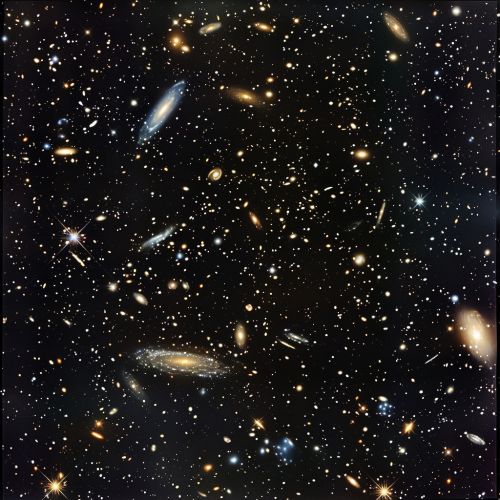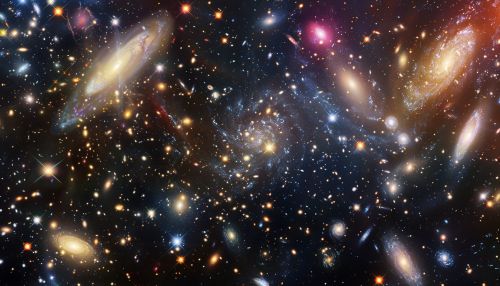Cosmological Natural Selection
Overview
Cosmological Natural Selection (CNS) is a scientific hypothesis proposed by physicist Lee Smolin. This theory, also known as "fecund universes", suggests that a process similar to biological natural selection applies at the grandest of scales. Smolin postulated that universes reproduce and are selected for their ability to produce black holes, each of which then produces a new universe.
Theoretical Background
CNS is grounded in the principles of quantum mechanics, general relativity, and quantum gravity. The theory attempts to explain why our universe appears fine-tuned for the emergence of life and complexity. It suggests that the parameters of the Standard Model of particle physics, and the cosmological constant, are not arbitrary but are selected for their ability to promote the formation of black holes.


Hypothesis
The CNS hypothesis is based on the idea that the birth of a new universe occurs within every black hole. According to Smolin, when a black hole forms, it triggers the creation of a new universe with slightly altered physical constants. This process is analogous to genetic mutation in biological evolution. The new universe inherits the fundamental physical parameters of its parent, with some small random variations.
Black Holes and Universe Reproduction
In the CNS model, black holes play a crucial role in the reproduction of universes. When a star collapses under its own gravity, it forms a black hole. Smolin suggests that the singularity at the center of a black hole is not just an end point, but a gateway to a new universe. This new universe expands on the "other side" of the black hole, disconnected from the parent universe.
Natural Selection at a Cosmological Scale
The principle of natural selection is central to the CNS hypothesis. Universes that are good at producing black holes will create more offspring universes, passing on their physical parameters. Over time, this leads to the "evolution" of universes that are increasingly fine-tuned for black hole production. Smolin suggests that this could explain why our universe appears to be fine-tuned for the formation of complex structures, such as galaxies, stars, and life.
Criticisms and Controversies
While the CNS hypothesis is intriguing, it has been met with skepticism and criticism. Critics argue that the theory lacks empirical evidence and is not falsifiable. Others point out that the CNS model makes assumptions about the nature of black holes and the multiverse that are not supported by current understanding of physics.
Implications and Future Research
Despite criticisms, the CNS hypothesis has stimulated discussion and research in cosmology and theoretical physics. It has implications for our understanding of the nature of the universe, the multiverse, and the fundamental laws of physics. Further research and observational evidence are needed to test the validity of this hypothesis.
